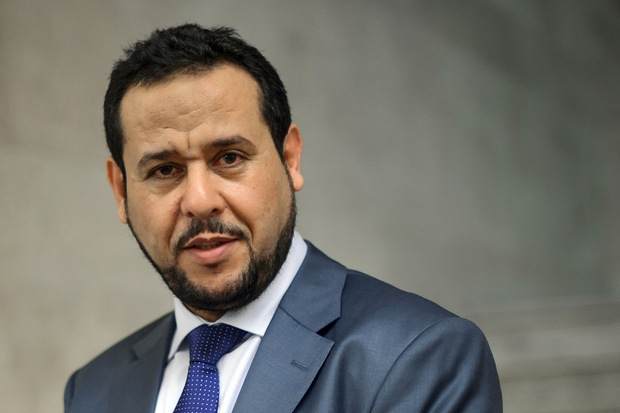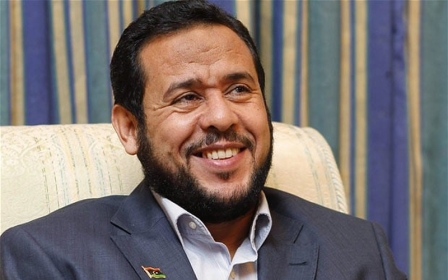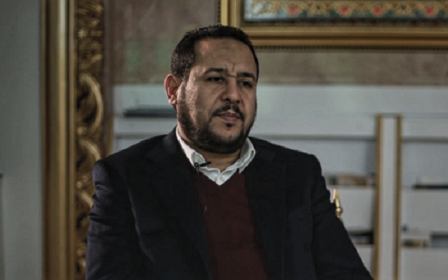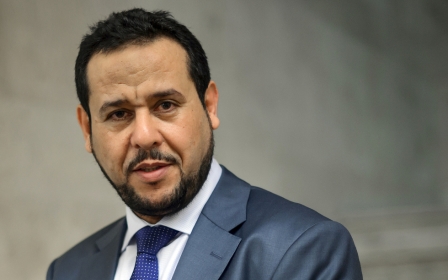UK government seeks secret court hearing in MI6 ‘rendition’ case

The UK government is set to apply for a secret hearing in a landmark case stemming from the involvement of a senior MI6 officer in the abduction and ‘rendition’ of two families to Libya, a court heard on Tuesday
Abdul-Hakim Belhaj and his wife Fatima Boudchar were kidnapped and rendered to Libya in joint CIA-MI6-Libyan operation in 2004. The couple was tortured by Libyan security forces and is currently challenging the decision by the director of public prosecutions, Alison Saunders, not to charge UK officials over the incident.
In a hearing at the High Court on Tuesday, it emerged that the UK government will apply for the judicial review into the case to be held in secret.
The judicial review comes after Scotland Yard recommended that criminal charges be brought, but the Crown Prosecution Service declined to charge the lead suspect - former MI6 official Sir Mark Allen.
At the High Court on Tuesday, lawyers for the director of public prosecutions (DPP) and the UK foreign minister said they would apply to have the entire challenge heard in secret. They are seeking to avoid the public disclosure of documents detailing the reasons it was decided not to prosecute.
The judge hearing the case, Lord Chief Justice Thomas, expressed surprise at the British government’s approach. He said: “I have never seen a case like this where the DPP has refused, in effect, to set out proper reasons you’re not prosecuting.”
He added: “If this was a murder case or a rape case, it would be inconceivable that the position taken by your client would be taken.”
The Foreign Office and DPP are now likely to apply to withhold the decision documents from Belhaj and his wife under a "Section 6" application of the Justice and Security Act 2013. This will prove controversial as this legal method has never used in a judicial review relating to a criminal prosecution decision. The 2013 law specifically excludes “criminal cause or matter” from areas where a wholly secret trial is available to government.
“We already knew MI6 and the Foreign Office were desperate to keep this case out of open court, but British prosecutors are meant to be independent – especially when they are investigating senior UK officials,” said Cori Crider, lawyer for the couple at the human rights organization Reprieve
If this was a murder case or a rape case, it would be inconceivable that the position taken by your client would be taken
Lord Chief Justice Thomas
She added: “DPP Alison Saunders’ approach has been to adopt the Foreign Office’s line wholesale, giving the victims no reasons, no evidence, and – as the Lord Chief Justice put it today – no facts about her decision not to prosecute. If our top prosecutor really cares about justice being done, she will let the victims see the evidence, and ensure that Sir Mark Allen answers in court for his actions.”
It has taken five years for the case to get to court and judicial review in the face of a stonewall campaign by the British establishment - a tactic Crider has said proves only that the state could not admit wrongdoing.
The case came to light after the fall of Tripoli in 2011, when faxes from Allen, MI6’s then counter-terrorism director, describing the rendition flights were found in the office of Moussa Koussa, Libya’s head of intelligence.
“The documents show - pretty much in black and white - a joint CIA-MI6/Libyan effort to abduct him and his wife and send them back to Libya. Because of the Tripoli files we don't just know from our client's testimony what happened, we know from [the government's] own contemporaneous documentation,” Crider told Middle East Eye in an interview in May.
“The British government has argued that it cannot allow the case to come to open court because it could reveal details that could damage relations with the US under the so-called ”foreign act of state doctrine“, whereby foreign states and their agents are granted immunity from actions by British courts.
A former militant leader with the anti-Gaddafi Libyan Islamic Fighting Group (LIFG), Belhaj was subsequently imprisoned for six years during which time he says he was routinely tortured and mistreated.
Belhaj's abduction came at a time when Britain’s government under prime minister Tony Blair was wooing Gaddafi's sanction-crippled Libya as a potential ally in the so-called “War on Terror” launched by the US against al-Qaeda and allied Islamist militants, as well as eyeing lucrative oil contracts for British firms.
The US deemed the anti-Gaddafi LIFG, which was formed in 1990 by Islamist Libyans who had fought in Afghanistan against Soviet forces in the 1980s, to be a terrorist group allied with al-Qaeda.
But Belhaj denied any links between the group and al-Qaeda, and said he believed that his rendition to Libya was part of a covert deal between Blair and Gaddafi, who was ousted and killed in a popular uprising in 2011.
Middle East Eye propose une couverture et une analyse indépendantes et incomparables du Moyen-Orient, de l’Afrique du Nord et d’autres régions du monde. Pour en savoir plus sur la reprise de ce contenu et les frais qui s’appliquent, veuillez remplir ce formulaire [en anglais]. Pour en savoir plus sur MEE, cliquez ici [en anglais].




